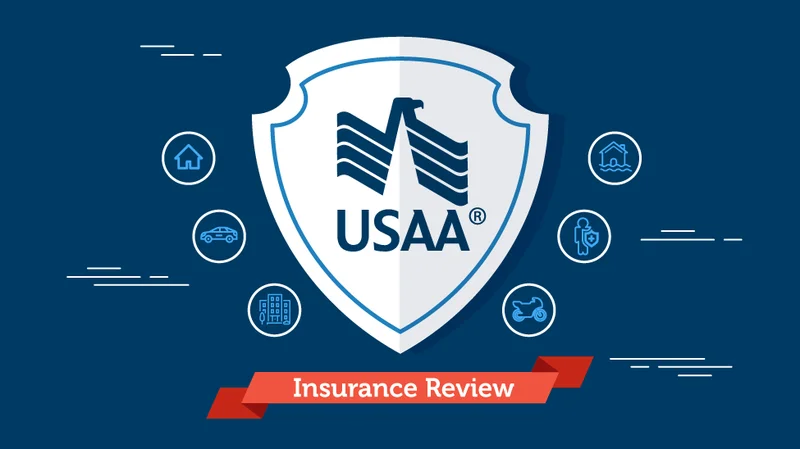Professional Vision. Smarter Crypto Decisions.
Professional Vision. Smarter Crypto Decisions.
The collaboration between USAA and Humana, announced in late 2025, aims to provide streamlined healthcare options for veterans, particularly those navigating the complexities of Medicare Advantage plans. On the surface, it’s a feel-good story: two companies with strong ties to the military community joining forces. But let's dig into the numbers and see if it adds up, or if it’s just another case of well-intentioned marketing glossing over the realities of the healthcare market.
Humana and USAA are touting Medicare Advantage (MA) plans as a supplement to VA benefits, offering veterans broader access to healthcare. The argument is that MA plans provide access to a wider network of doctors, shorter wait times, and coverage when VA care isn’t readily available. Michael Jones, a broker relations manager with Humana and a U.S. Army veteran, emphasizes that coverage options should help veterans access care "where and when they need it."
However, the assertion that MA plans neatly fill gaps in VA coverage warrants closer inspection. While it's true that VA facilities aren't always conveniently located or immediately accessible, MA plans come with their own set of potential drawbacks. These plans often involve navigating complex networks, pre-authorization requirements, and potential limitations on specialist access. It begs the question: are veterans simply trading one set of bureaucratic hurdles for another? And how many veterans are truly benefiting from the "giveback" plans that supposedly add money back to their Social Security checks? The fine print states the amount may change based on what you pay for Part B.
The partnership highlights Humana USAA Honor Giveback plans, which include a Part B giveback. They also supposedly have a $0 monthly plan premium, $0 copay for in-network primary care visits, and dental, vision and hearing coverage. New in 2026, every Humana USAA Honor Giveback plan features a $0 copay for in-network mental health services, including therapy and specialist visits, both virtually and in-person. But how many in-network providers are actually available, and how does that compare to the VA system?
The Humana USAA Honor Giveback plans are available to anyone eligible for Medicare. Humana Insurance Company pays royalty fees to USAA for the use of its intellectual property. The question is, do these plans genuinely offer a significant financial advantage to veterans? The answer is murky. The "giveback" is tied to the Part B premium, and the amount can fluctuate.
USAA car insurance is known for its competitive rates, excellent financial strength, and service to military personnel and their families. USAA rates are well below average auto premiums. The company also scores well on J.D. Power customer service surveys, but has a higher-than-average complaint rating with the National Association of Insurance Commissioners (NAIC).
Average monthly cost for full coverage: $168. USAA scored above average in all regions in J.D. Power customer satisfaction. USAA scored 49 points above the average in J.D. Power auto claims satisfaction. (USAA did not receive an official claims ranking from J.D. Power because it only serves the military community.) According to USAA car insurance review 2025: 3.5 out of 5 stars, USAA earned 3.5 out of 5 stars.
But even with a Part B giveback, veterans need to carefully weigh the costs and benefits of an MA plan against their existing VA benefits. Are the potential out-of-pocket expenses (copays, deductibles, and coinsurance) offset by the added convenience and access?

I've looked at these types of partnerships before, and the devil is always in the details of the plan design and the availability of in-network providers.
Mary Forey, AVP of Health Solutions at USAA, emphasizes that the partnership provides veterans with "trusted guidance to support their overall health not only for today, but for tomorrow as well." Humana Customer Care specialists receive special training to help veterans navigate their benefits. They guide veterans on which plans best support their lifestyle and how to use Medicare coverage when they also have VA coverage.
But the key metric here is customer satisfaction, and the reviews are mixed. USAA has a TrustPilot rating of 1.2 out of 5 stars. (It's worth noting that TrustPilot ratings should be taken with a grain of salt, as they can be easily manipulated.) Negative reviews cite poor or inconsistent customer service, while positive reviews cite low rates and good service.
The question is whether the "community of care" is truly a tangible benefit or a marketing slogan. Are veterans receiving personalized support and guidance, or are they simply being directed to a call center with scripted responses? The answer, as with most things, likely lies somewhere in between.
The Humana-USAA partnership is a complex equation. On one hand, it aims to address the evolving healthcare needs of a growing veteran population. The collaboration leverages the strengths of both organizations – USAA's deep roots in the military community and Humana's expertise in healthcare management – to offer potentially valuable Medicare Advantage options. A Shared Mission: Humana and USAA Join Forces to Support Veterans’ Health As They Age highlights the benefits of this partnership.
On the other hand, the marketing rhetoric surrounding the partnership needs to be tempered with a healthy dose of skepticism. The true value of these plans depends on individual circumstances, plan design, and the availability of quality in-network care. Veterans need to do their homework and carefully compare the costs and benefits before making any decisions.
The data is not yet conclusive, and it will take time to determine whether this partnership genuinely improves the lives of veterans or simply adds another layer of complexity to an already convoluted healthcare system.